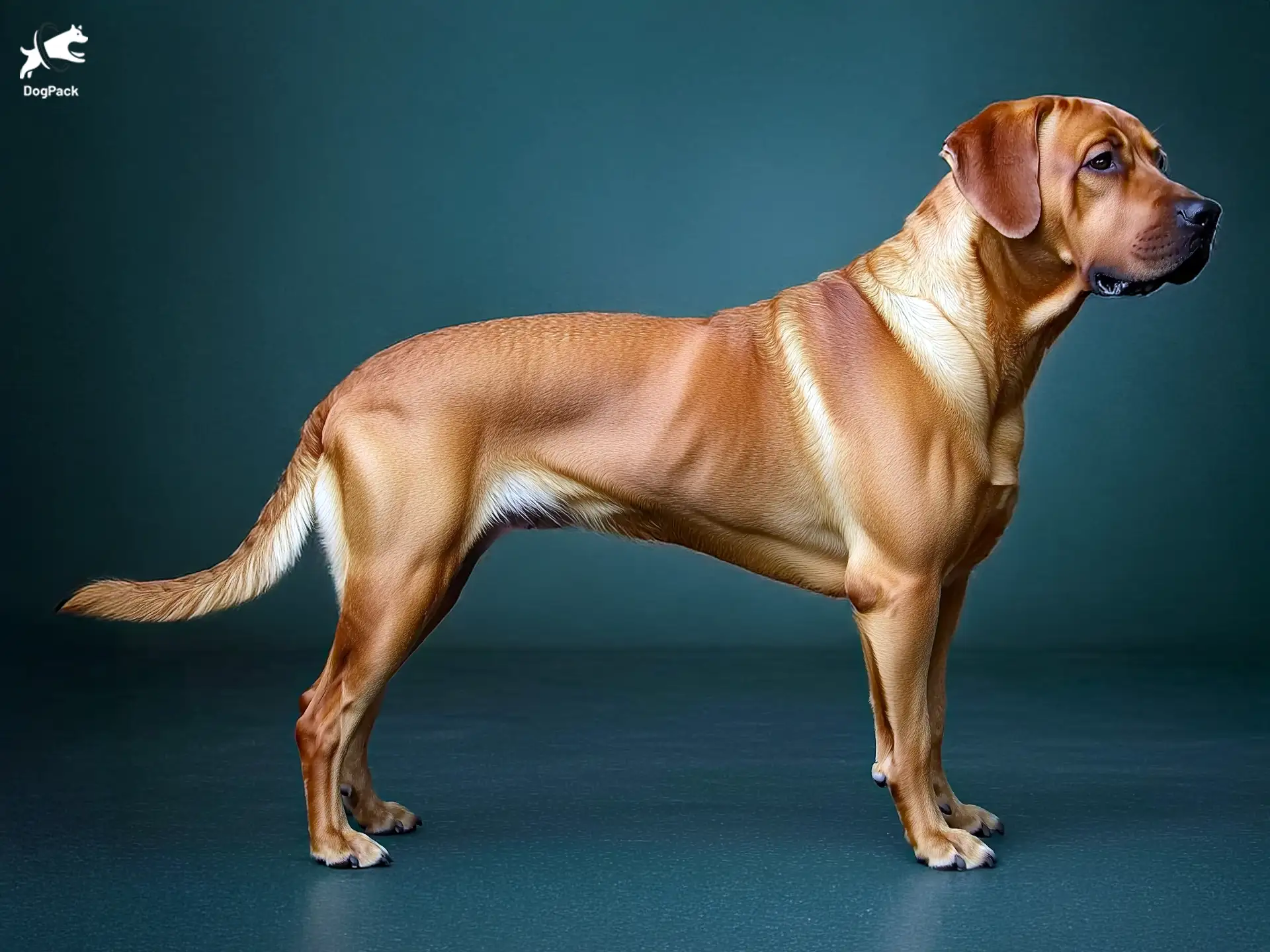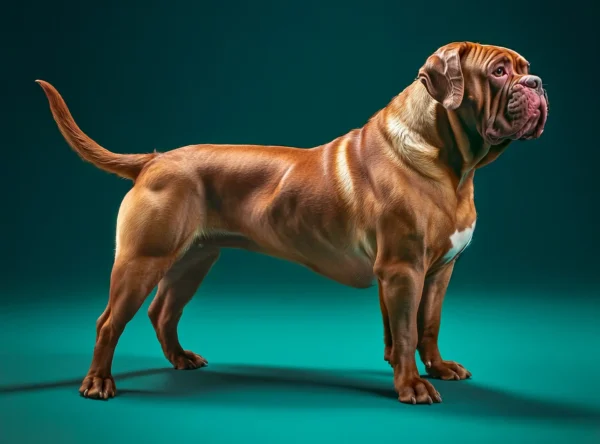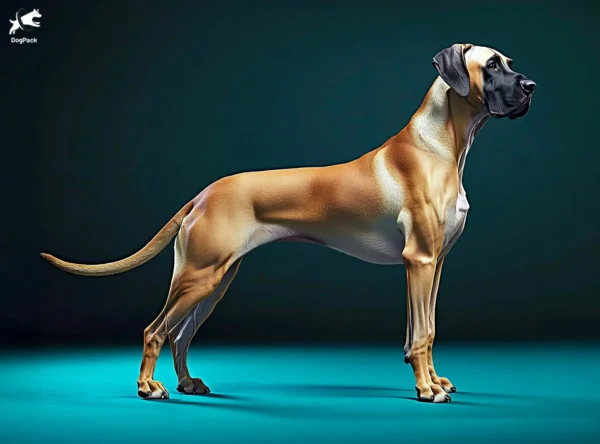Broholmer Dog Breed Info & Overview
The Broholmer, a majestic breed from Denmark, is known for its impressive size and even more remarkable heart. These gentle giants boast a noble appearance, matched by their calm and friendly demeanor. Whether as a devoted family companion or a loyal guardian, the Broholmer is a hidden gem, offering both strength and affection in equal measure.
Characteristics
Pictures
Breed History
The Broholmer traces its roots back to Denmark in the Middle Ages, where it was primarily used for guarding estates and hunting large game like deer. This breed was a favorite among Danish nobility, who admired its imposing size and protective instincts.
Named after Sehested of Broholm, a Danish gamekeeper who played a significant role in preserving the breed in the 19th century, the Broholmer nearly faced extinction after World War II. Dedicated enthusiasts worked tirelessly to revive the breed, ensuring its survival into modern times.
Today, the Broholmer remains a rare breed but has gained recognition for its gentle temperament and loyalty. While still used as a guard dog in some regions, it has found a place in many homes as a beloved family companion.
Temperament, Personality
Known for their calm and steady demeanor, Broholmers make excellent family dogs for those who can handle their size. They are affectionate with family members and often form strong bonds, showcasing a gentle nature especially with children.
With other pets, early socialization is key. Broholmers can coexist peacefully with other animals if introduced properly. Their protective instincts might make them wary of strangers at first, but they generally warm up once they perceive no threat.
Despite their imposing appearance, these dogs are not aggressive by nature. They are vigilant and will alert owners to unusual activities, making them reliable watchdogs. Their balanced temperament suits experienced dog owners who appreciate a loyal and composed companion.
Physical Characteristics
The Broholmer is a large, robust dog with a strong and muscular build. They have a broad head with a short coat that comes in shades of yellow, golden red, or black. Their expressive eyes give off a friendly yet watchful gaze.
One of their most distinctive features is their powerful stance combined with a calm expression. The breed’s physical presence is impressive, yet their movements are graceful and steady, reflecting their composed nature.
Their short, dense coat requires minimal grooming, and their muscular frame underscores their historical role as working and guard dogs. Overall, the Broholmer’s appearance commands respect while conveying a gentle disposition.
Health Issues
Broholmers are generally healthy but can be prone to certain large-breed health issues. Hip and elbow dysplasia are common concerns due to their size. Regular veterinary check-ups can help detect and manage these conditions early.
They may also be susceptible to heart conditions like dilated cardiomyopathy. Monitoring their heart health through routine exams is advisable. Keeping them at a healthy weight can reduce stress on their joints and heart.
Bloat is another serious condition that can affect deep-chested breeds like the Broholmer. Feeding them smaller, frequent meals and avoiding vigorous exercise after eating can help prevent this life-threatening issue.
Grooming Needs
With a short and dense coat, the Broholmer’s grooming needs are relatively low-maintenance. Weekly brushing is usually sufficient to remove loose hair and keep their coat looking its best. During shedding seasons, more frequent brushing may help manage hair around the home.
Bathing can be done as needed, typically every few months unless they get into something messy. Their ears should be checked regularly for signs of infection or buildup, and cleaned gently as necessary.
Don’t forget dental hygiene—regular teeth brushing will help prevent dental diseases. Also, keeping their nails trimmed will ensure comfort during movement. Overall, the Broholmer is a breed that doesn’t demand extensive grooming routines.
Exercise Requirements
Broholmers have moderate energy levels but still require daily exercise to keep them healthy and happy. A combination of walks and playtime totaling 1–2 hours per day is ideal. They enjoy leisurely strolls and have the stamina for longer hikes.
Despite their size, they are not overly active indoors and are content relaxing with the family. However, they do need space to move around, so a home with a yard is beneficial. Mental stimulation through training or puzzle toys can also keep them engaged.
Avoid over-exercising them during puppyhood to protect their developing joints. As they mature, consistent activity will help maintain their muscle tone and prevent obesity, contributing to their overall well-being.
Training Tips
Training a Broholmer requires a patient and consistent approach. They are intelligent and eager to please but may exhibit a stubborn streak at times. Positive reinforcement methods work best, using treats and praise to motivate them.
Early socialization is crucial to help them become well-adjusted adults. Exposing them to different people, places, and other animals will enhance their naturally friendly demeanor. Obedience classes can provide structure and help reinforce good behavior.
Given their protective instincts, it’s important to establish yourself as the leader early on. Setting clear boundaries and expectations will make training smoother. With proper guidance, a Broholmer can become a well-mannered and obedient companion.
Nutrition, Diet
Feeding a Broholmer requires attention to quality and quantity to meet their nutritional needs. A diet formulated for large-breed dogs is recommended, providing balanced protein, fats, and carbohydrates. Portions should be appropriate for their size and activity level.
Puppies should be fed a diet that supports controlled growth to prevent joint issues. Dividing their food into two or three meals per day can help reduce the risk of bloat, a condition they’re susceptible to.
Consulting with a veterinarian can help tailor a diet plan specific to your Broholmer’s needs. Monitoring their weight and adjusting food intake accordingly will ensure they maintain a healthy physique throughout their life.
Adoption, Breeders
If you’re considering adding a Broholmer to your family, seeking out reputable breeders is essential. Groups like the Broholmer Club provide resources and breeder referrals. Ensure breeders conduct health screenings for common genetic issues.
Adoption is another option, though Broholmers are rare outside their native Denmark. Checking with rescue groups or breed-specific organizations may lead you to a dog in need of a home. Websites like Petfinder occasionally list Broholmers available for adoption.
Avoid purchasing from puppy mills or unreliable sources. Responsible breeders and rescue organizations prioritize the health and well-being of their dogs, helping you find a Broholmer that will be a loving addition to your home.
Family Pet?
Broholmers can make excellent family pets for those who have the space and experience to manage a large dog. They are gentle with children and often form strong bonds with all family members. Their calm nature makes them pleasant companions in a household setting.
Supervision around small children is advisable due to their size, to prevent accidental knocks or bumps. Teaching both the dog and children how to interact respectfully will foster a harmonious relationship.
Their compatibility with other pets depends on early socialization. Introducing them to other animals during puppyhood increases the likelihood of peaceful coexistence. Overall, the Broholmer thrives in a loving family environment.
Right For You?
If you’re seeking a loyal, calm, and protective companion, the Broholmer might be the breed for you. They require an owner who can provide leadership, adequate space, and commitment to their exercise and socialization needs.
Their size and strength mean they’re best suited for experienced dog owners. If you have the room and dedication to meet their needs, a Broholmer can be a rewarding addition to your family, offering years of affectionate companionship.
Consider your lifestyle and living situation carefully. This breed flourishes with attention and inclusion in family activities. If you can offer a Broholmer a suitable home, you’ll gain a devoted and gentle friend.
Conclusion
The Broholmer is a majestic and gentle giant that brings a unique blend of calmness and protectiveness to a household. While they require space and an experienced hand, the rewards of owning such a loyal and affectionate breed are immense. If you’re ready to welcome a Broholmer into your life, you’ll find a devoted companion who enriches your family for years to come.
FAQs
-
Why are Broholmers known as “gentle giants”?
Broholmers are often called “gentle giants” because, despite their large size, they have a calm and patient temperament. They are known for being affectionate and protective, making them great family companions.
-
Do Broholmers have any specific health concerns?
Broholmers are prone to some common large-breed health issues like hip and elbow dysplasia. Regular veterinary check-ups, a balanced diet, and keeping them at a healthy weight help reduce the risk of joint problems.
-
How well do Broholmers handle cold weather?
Broholmers have a thick coat that allows them to handle cold weather fairly well. However, they should still be provided with shelter and not left outside for extended periods in freezing temperatures.
-
How did the Broholmer’s role as a guard dog develop?
Broholmers were historically used to guard estates and large properties in Denmark. Their size, strength, and natural protective instincts made them ideal for guarding livestock and families, a role they continue to excel in today.
-
Are Broholmers known for drooling?
Yes, Broholmers are prone to drooling, particularly after eating or drinking. Keeping a towel nearby to wipe their mouths can help manage this common trait in large, mastiff-type dogs.
Breed Ratings
The Broholmer is intelligent and learns commands readily, especially with consistent training and positive reinforcement.
They enjoy playtime but are generally more laid-back, preferring gentle activities over high-energy games.
With moderate energy, they require regular exercise but are content with relaxed family time indoors.
Shedding is moderate; regular brushing helps manage loose hair and keeps their coat healthy.
They have a low prey drive, making them less likely to chase smaller animals, especially when properly socialized.
Their short coat requires minimal grooming, making maintenance straightforward and manageable.
Eager to please and responsive to training, they do well with a patient and consistent approach.
Broholmers prefer companionship and may experience anxiety if left alone for extended periods.
They are generally quiet but will bark to alert owners of strangers or unusual situations.
Drooling is minimal compared to other large breeds, though it can occur after eating or drinking.
Can be friendly with other dogs if socialized early; supervision is recommended during interactions.
Generally healthy but prone to certain large-breed health issues; regular vet care is important.













